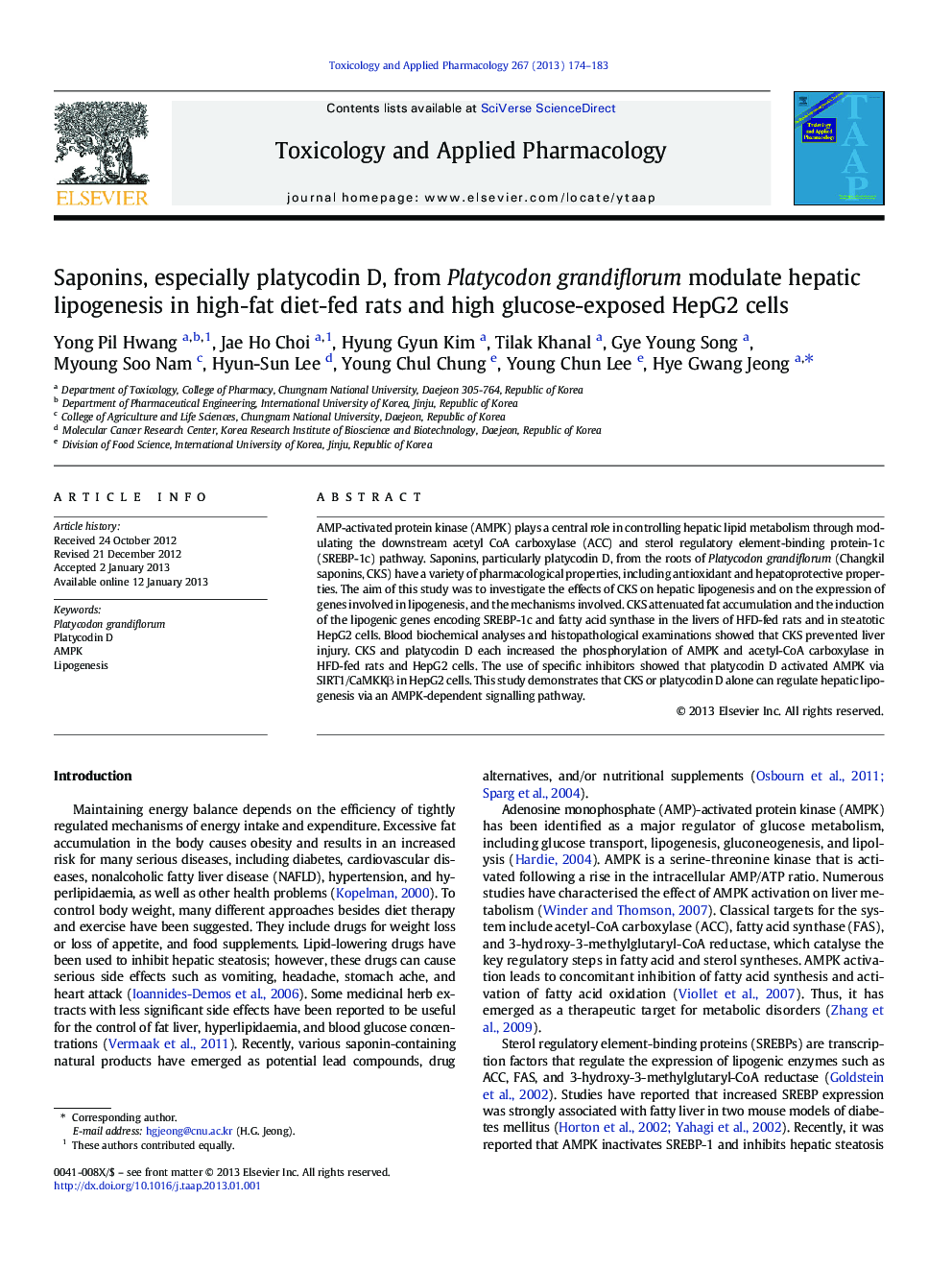| Article ID | Journal | Published Year | Pages | File Type |
|---|---|---|---|---|
| 2568855 | Toxicology and Applied Pharmacology | 2013 | 10 Pages |
AMP-activated protein kinase (AMPK) plays a central role in controlling hepatic lipid metabolism through modulating the downstream acetyl CoA carboxylase (ACC) and sterol regulatory element-binding protein-1c (SREBP-1c) pathway. Saponins, particularly platycodin D, from the roots of Platycodon grandiflorum (Changkil saponins, CKS) have a variety of pharmacological properties, including antioxidant and hepatoprotective properties. The aim of this study was to investigate the effects of CKS on hepatic lipogenesis and on the expression of genes involved in lipogenesis, and the mechanisms involved. CKS attenuated fat accumulation and the induction of the lipogenic genes encoding SREBP-1c and fatty acid synthase in the livers of HFD-fed rats and in steatotic HepG2 cells. Blood biochemical analyses and histopathological examinations showed that CKS prevented liver injury. CKS and platycodin D each increased the phosphorylation of AMPK and acetyl-CoA carboxylase in HFD-fed rats and HepG2 cells. The use of specific inhibitors showed that platycodin D activated AMPK via SIRT1/CaMKKβ in HepG2 cells. This study demonstrates that CKS or platycodin D alone can regulate hepatic lipogenesis via an AMPK-dependent signalling pathway.
► CKS attenuated fat accumulation in HFD-fed rats and in steatotic HepG2 cells. ► CKS and its major component, platycodin D, inhibited the levels of SREBP-1 and FAS. ► CKS and platycodin D increased the phosphorylation of AMPK and ACC. ► Platycodin D activated AMPK via SIRT1/CaMKKβ in HepG2 cells.
